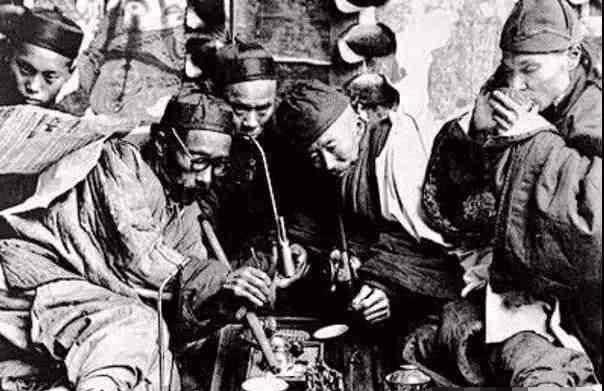Until the fall of the Manchu Qing Dynasty, the Eight Banners still retained their organization, but they had long been decayed and could not fight at all.
Ever since the monk Greenqin was hacked to death in 1865 by a small child of the Twister Army, the last powerful general of the Eight Banners who could fight a war also died.
The subsequent Eight Flags soldiers had no combat effectiveness at all, and the establishment of the Eight Flags was more like a kind of poverty alleviation institution today, only giving the children of the Eight Flags a state salary.
When the Eight-Power Alliance invaded China, the large army was killed under the city of Beijing, and the so-called Eight Banner Soldiers basically scattered.
Lao She's father was the Eight Banner Soldiers, who had never fought with anyone in his life, and his only experience was raising birds. Seeing the Eight-Nation Alliance attacking the city, Lao She's father struggled to shoot with a fire bolt. As a result, the enemy's fire bolt, which had never hit the enemy, exploded on its own, killing Lao She's father.

Even so, the Eight Banner Soldiers are still stationed in Beijing and major cities across the country, with a total of more than 200,000. Among them, there are about 100,000 in Beijing and more than 100,000 in local areas. However, even in the local area, the Eight Banner Soldiers and their families did not mix with the Han Chinese and lived in their own so-called Mancheng.
During the Xinhai Revolution, the Eight Banners rebelled fiercely and fought many battles.
Why? At that time, it was rumored that the Han revolution was going to kill the flag people, and the eight flag soldiers could only fight, but later found that there was no massacre at all, so they quickly surrendered, after all, they did not have the ability to fight.
Second, the Green Battalion.
The Green Battalion, once had a size of 600,000 to 700,000, was the Manchu Qing National Defense Force.
But the Green Battalion soldiers are also corrupting rapidly, mainly because their salaries are meager, only enough for the hukou, and they are jobs at the bottom of society.
Because of their poor lives and lack of fighting spirit, the Green Battalion soldiers had no combat effectiveness as early as the Jiaqing era, and during the Opium War, they fled when they heard about the foreigners' artillery.
Because the Green Battalion soldiers had no combat effectiveness, the Manchu Qing was forced to use the local armed Xiang Army and huai army.
By the time of the fall of the Manchu Qing Dynasty, the Green Battalion had been repeatedly dismantled and could not fight, resembling a local security force or police.
Third, the new army in the town of 36
By the time of the fall of the Manchu Qing, the Xiang army was unloaded and slaughtered after the fall of the Taiping Heavenly Kingdom, and basically disintegrated.
The Huai army suffered heavy losses in the Sino-Japanese War, and there was little left.
The 5 armed guards that the Manchu Qing had organized in the afternoon of jia were defeated 4 during the invasion of China by the Eight-Nation Alliance.
The remaining Wu Wei Right Army was Yuan Shikai's concubine.
Because of Yuan Shikai's cunning and resistance to the orders of the imperial court, he remained stationary in Shandong and was able to save this unit.
Based on the Right Army of Wu Wei, Yuan Shikai organized 6 towns in Beiyang, that is, the troops of 6 divisions, after the Gengzi Incident.